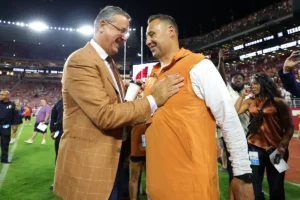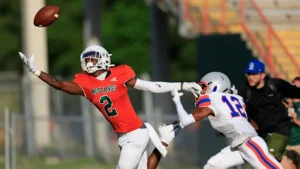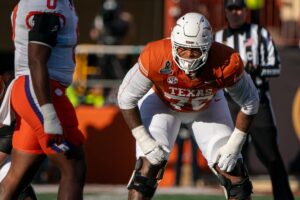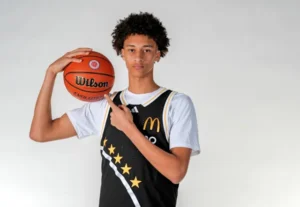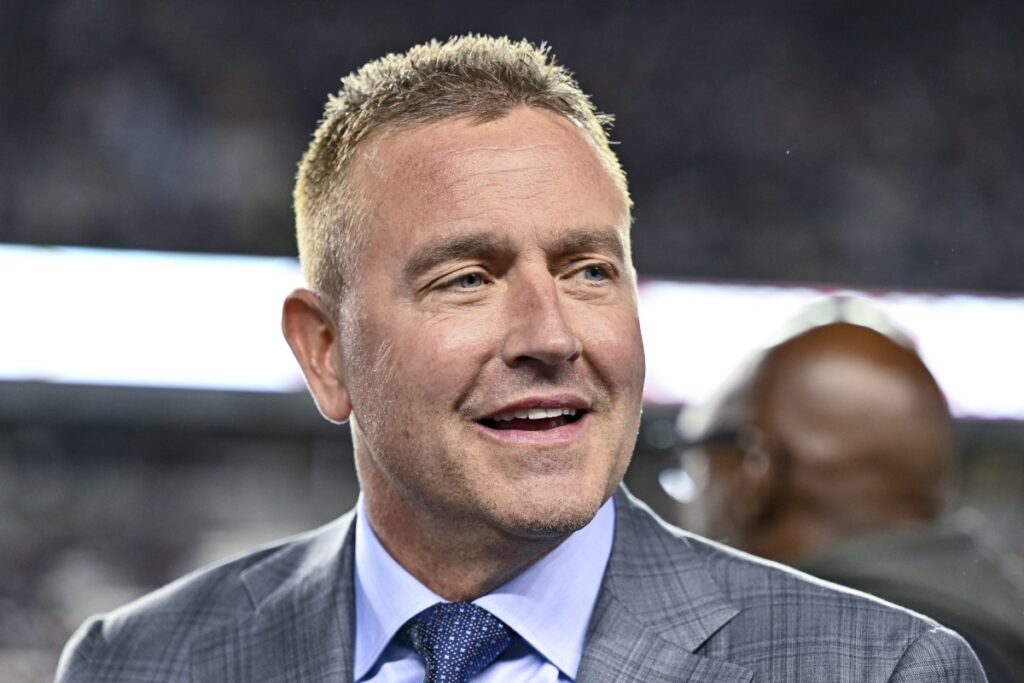
Kirk Herbstreit, ESPN’s long-time college football analyst, is no stranger to controversy, but his latest remarks on the fiery debates surrounding Nico Iamaleava, Tennessee’s highly-anticipated quarterback recruit, have garnered significant attention. Herbstreit’s passionate defense of the young quarterback and his criticism of Tennessee’s fanbase calling out the 2023 five-star prospect is not only a condemnation of online toxicity but also a reminder of the larger cultural issues plaguing modern college football.
For years, Herbstreit has been an outspoken voice on matters relating to college football, but his recent remarks about the criticism directed at Nico show a side of him that goes beyond analysis and statistics. In a time when social media has amplified the echo chamber of fans’ voices—sometimes for the worse—Herbstreit’s comments highlight the growing toxicity within fanbases, particularly toward young athletes who have yet to prove themselves on the field.
The Rise of Nico Iamaleava
Before we dive into Herbstreit’s comments, it’s important to understand who Nico Iamaleava is and why he’s been at the center of this controversy. Nico, a dynamic 6’5” quarterback out of Long Beach, California, is widely regarded as one of the top high school quarterbacks in the country. Rated as the No. 1 overall prospect in the 2023 recruiting class by several major outlets, Nico’s commitment to Tennessee in 2022 sent shockwaves throughout the college football recruiting world. His athleticism, arm strength, and leadership have made him a highly-coveted player, one who many believe will one day dominate the SEC and become a future NFL draft pick.
Given the high expectations that accompany a recruit of Nico’s caliber, the pressure surrounding his arrival in Knoxville was inevitable. However, the tone surrounding his recruitment turned sour as Tennessee fans, like those of any major program, became increasingly vocal about their hopes, desires, and frustrations. And when Nico’s arrival didn’t immediately produce the anticipated results, the fanbase began to turn.
The Backlash
Though it’s a common occurrence for top recruits to be scrutinized if they don’t immediately meet the lofty expectations placed upon them, the situation surrounding Nico has been especially heated. Several Tennessee fans began to publicly voice their displeasure with Nico, taking shots at his character, talent, and potential. Much of this ire was rooted in the fact that the Volunteers’ coaching staff made a huge financial commitment to Iamaleava through their NIL (Name, Image, and Likeness) program, reportedly offering him a significant sum of money to come to Knoxville. In return, fans expected immediate on-field results.
The criticism of Nico was not limited to his play but also extended to questions about his maturity, leadership, and ability to live up to the hype. Some fans were quick to judge his every move, whether it was a missed throw, an off-the-field comment, or simply a social media post. In short, the expectations were too high, and the leash was too short.
For many players, the pressure to perform can be overwhelming. It’s even harder for those like Nico, who are thrust into the spotlight before they’ve even played a down of college football. The criticism became personal, and soon, it wasn’t just about Nico’s play on the field—it was about his identity and worth as a young man.
Kirk Herbstreit’s Response
Kirk Herbstreit’s reaction to the criticism of Nico was both direct and impassioned. On a recent episode of College GameDay, Herbstreit made it clear that he was fed up with the treatment of Iamaleava, and his words resonated with many in the college football community.
“Why are we, as fans, so quick to tear down a kid before he’s even had a chance to prove himself?” Herbstreit said. “We need to stop treating these young athletes like they’re professional athletes already. It’s unfair, and it’s detrimental to their mental health.”
Herbstreit’s words struck a chord, especially when he pointed out that this behavior was often rooted in fans projecting unrealistic expectations onto recruits and young players. He argued that the toxicity of social media amplified these voices, creating an environment where young athletes like Nico could do nothing right. And for what? Because they dared to accept a scholarship to play football for one of the most storied programs in the country?
“I’ve been around this game a long time, and I’ve seen how hard it is for these kids,” Herbstreit continued. “We need to give them a break. We need to let them develop at their own pace. Nico’s not a finished product. He’s a 17-year-old kid who hasn’t even played a snap in college yet. But we’re already tearing him down, and that’s just wrong.”
A Broader Issue: The Rise of Toxic Fan Culture
Herbstreit’s remarks about the treatment of Nico Iamaleava are not just a defense of one player—they’re a critique of the broader culture that has emerged in college football and sports in general. The constant demand for instant gratification, coupled with the rise of social media, has led to an environment where players are often judged more harshly than they should be. Instead of appreciating the human element of sport, where players are allowed to fail, grow, and improve, many fans view athletes as commodities whose value is tied solely to their immediate on-field performance.
This issue has become particularly prominent in college football, where athletes—especially those involved in high-profile recruiting battles—are constantly under a microscope. The pressure is immense, and for many players, it can be mentally and emotionally draining. Yet, instead of offering support and patience, some fans are all too willing to jump on the bandwagon of negativity, demonizing young athletes when they don’t meet expectations immediately.
Nico, despite his immense talent, is no exception. The criticism directed at him is a symptom of a larger problem in sports culture—one that places unrealistic expectations on young athletes and refuses to allow them the time to develop into the players they are capable of becoming.
The Impact on Mental Health
In his response, Herbstreit didn’t shy away from addressing the psychological toll that this kind of treatment can have on a player. Mental health issues are a growing concern in professional and collegiate sports, and the added pressure from fans—especially in a sport as high-stakes as college football—only exacerbates the problem. It’s easy to forget that players like Nico are not robots; they are human beings who experience emotions, stress, and self-doubt, just like anyone else.
The impact of constant online criticism, coupled with the pressure to succeed, can lead to burnout, anxiety, and depression. And while many fans may see their criticism as harmless banter, it can have long-lasting effects on a young player’s mental health and overall well-being.
Herbstreit’s comments serve as a reminder that, while college football is a game of high stakes, it is still a game—and the players are still kids who deserve to be treated with respect, patience, and understanding.
A Call for Accountability
Herbstreit’s response to the criticism of Nico Iamaleava isn’t just a defense of one individual—it’s a call for accountability among fans and media members alike. It’s a call to reconsider the ways in which we treat athletes, particularly those in the early stages of their careers.
“We need to hold ourselves accountable,” Herbstreit concluded in his remarks. “We’re the ones who set the tone. If we, as fans and media, continue to create this toxic environment, it’s only going to hurt the game. Let’s appreciate the journey of these players, not just the destination.”
Herbstreit’s passionate defense of Nico Iamaleava serves as a poignant reminder that, at the end of the day, college football is about more than just winning and losing—it’s about the people who play the game. And it’s time we start treating them with the respect they deserve.


